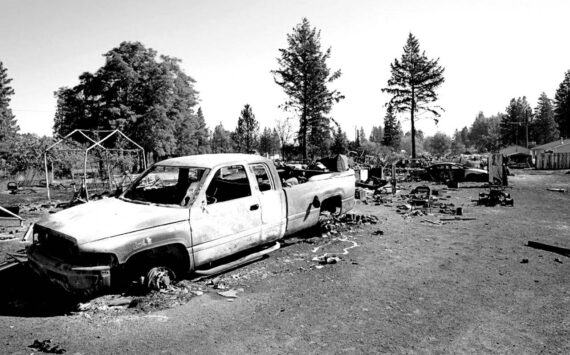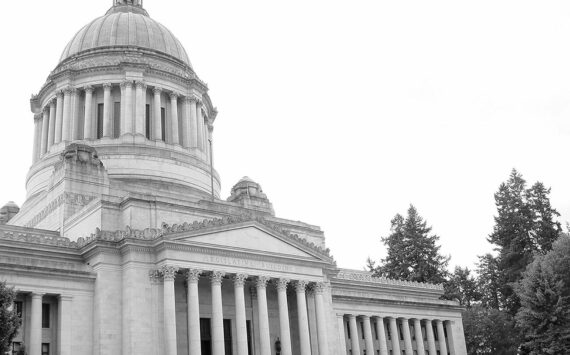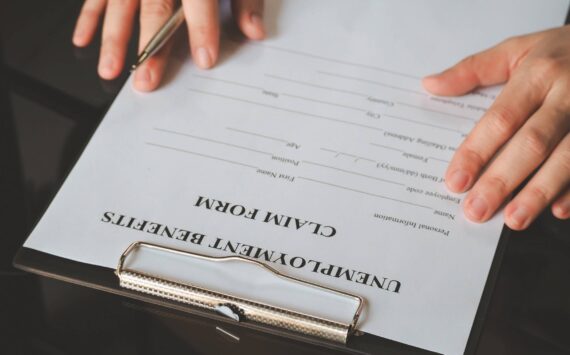If you like history as told by those who made it, then the Tacoma Community History Project is for you. Beginning with his first year on campus, founding faculty member Michael Honey, the Fred & Dorothy Haley Professor of Humanities in the School of Interdisciplinary Arts & Sciences, has taught courses in oral history at the undergraduate and graduate levels. In the classes, students learn to conduct interviews and compile histories of people, institutions and communities in the South Sound. More than 70 of these student history projects are now available digitally via the UW Tacoma Library’s Tacoma Community History Project collection: http://content.lib.washington.edu/tacomacommweb/index.html
More than two decades of research by students in Professor Michael K. Honey’s oral history courses was kept in a library storage room—a rich collection of untold stories of working-class Tacoma sadly out of sight and out of mind.
Honey knew the materials gathered by students supported first-person stories that deserved to be shared widely. So the humanities and history professor found a way. He collaborated with UW Tacoma Library and funding partners to digitize dozens of bulky 3-ring notebooks that make up the Tacoma Community History Project. The online collection has preserved his students’ best work, but more importantly, it has kept alive the underrepresented voices of blue-collar workers, minorities and Native Americans of the region.
For Honey, the experience has underscored a valuable lesson: In many classes across the curricula, students are doing amazing work that deserves to be shared with a larger audience. Faculty, he believes, should remain open to finding ways to share and disseminate that knowledge more widely, as they did in Tacoma.
“Before we digitized their work, these oral histories were not readily accessible,” Honey said, pointing to some boxes containing the work of recent students. “Getting them digitized was an important accomplishment.”
Now, someone anywhere in the world, with access to the UW digitized library materials, can read these oral histories and hear the recordings of real people from the South Puget Sound area.
“There are few histories of the South Puget Sound, and our collection provides an important primary source for anyone who would study this region in the modern era,” said Honey, who started the oral history class in 1991, one year after he and others started the Tacoma campus in the fall of 1990. The content of his classes were digitized and made available online in 2011. [Ed. Note: the collection has been augmented with more histories from 2014 and 2015.]
The community history project now has 70 oral histories, and Honey and his UW Tacoma Library partners continue to add to the rich digital tapestry, as students finish the latest interviews. This quarter, some of Honey’s students are expected to interview a number of grass-roots community leaders involved in the desegregation of public schools, as well as add to the interviews of Puyallup tribal members.
And Honey said he is looking forward to having his students work on oral histories that will focus on the creation of the UW Tacoma campus in future classes. Honey is one of the 13 founding faculty of the Tacoma campus.
The power of oral histories
Everyone has a story, Honey tells his students. And students have the power to bring them alive.
Honey, a gifted interviewer and award-winning author, teaches students skills he learned from a career of tapping into the oral history of underrepresented classes. This includes interviewing black workers in the Deep South during the 1930s for a book titled Black Workers Remember, to his recent book, Sharecropper’s Troubadour, about John Handcox, a beloved African American folk singer and labor organizer who helped shape the labor music tradition.
Michael K. Honey recently performed the songs of a beloved African American labor organizer as part of an oral history project. Visit Honey’s website [http://faculty.washington.edu/mhoney/] to hear the songs.
“My class focuses on teaching students how to do oral histories. The students do a research project, find someone to interview and off they go to get their stories. But there’s a lot of work they need to do before that conversation starts,” Honey said. He teaches them about the methodology of conducting oral history; how to compile documents to back up the stories, where to look for information, and finally how to approach the oral interview.
“As an interviewer, you have to come from a place of respect. You’re usually learning from an older person,” Honey said. “Oral history is important and demands immediate action because you don’t want these important stories to be lost.”
Honey wants others, including faculty, to know that it is not just oral histories that lend themselves to projects that fall under the digital humanities. There’s so much more that deserves to be digitized and shared with the world.
How Honey brought students’ oral histories out of the box
Honey spent quite a bit of time thinking about how best to bring his students’ stories to a wider audience. Here’s what he did:
* Start with funding: Digitizing a large collection is an expensive task, so Honey procured funding from Friends of the UW Libraries and the Puyallup Tribe of Indians.
* Strike key partnerships: Honey partnered with Justin Wadland, head of Media and Digital Collections at UW Tacoma. The library provided the expertise and the people to create an online digital collection that is easy to use and readily available. Michael Sullivan, an architect, preservationist and historian, also works with Honey in developing and teaching the course.
The library sought permission from former students, and their interview subjects and families to publish their materials. It is quite a bit of work because each oral history is accompanied by a research essay, interview recordings, primary and secondary sources and other key documents created by students.
* Make students realize they are part of something big: “I tell my students that as a historian, you want to get as close to the truth as you can. We can help preserve history by talking to people who have played an active role in their communities but have been overlooked for one reason or another. As students, they can contribute a great deal of understanding about our communities. What they do in my class will live on, and so will the stories of the people they interview,” Honey said.
– UW Tacoma Communications








